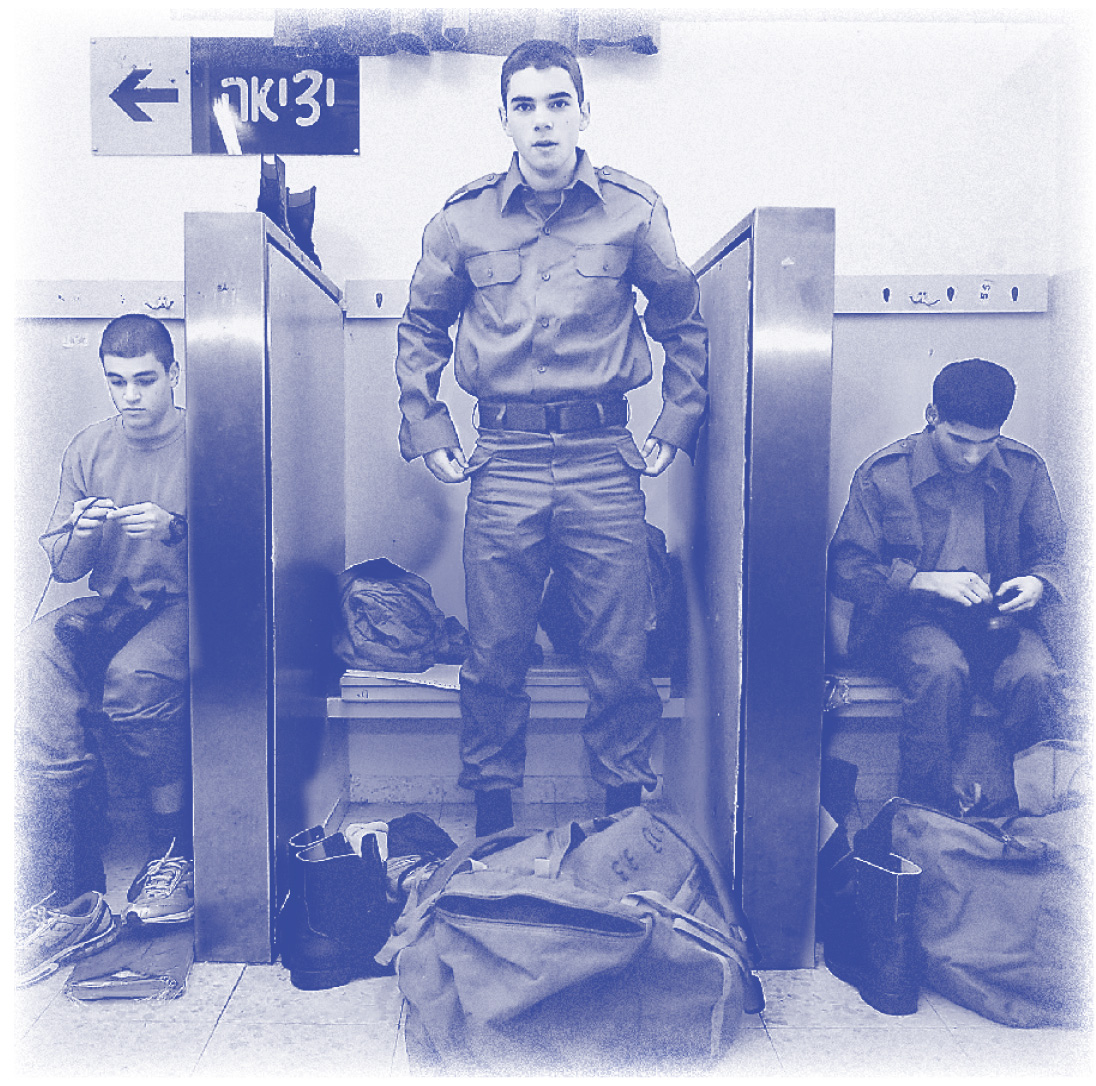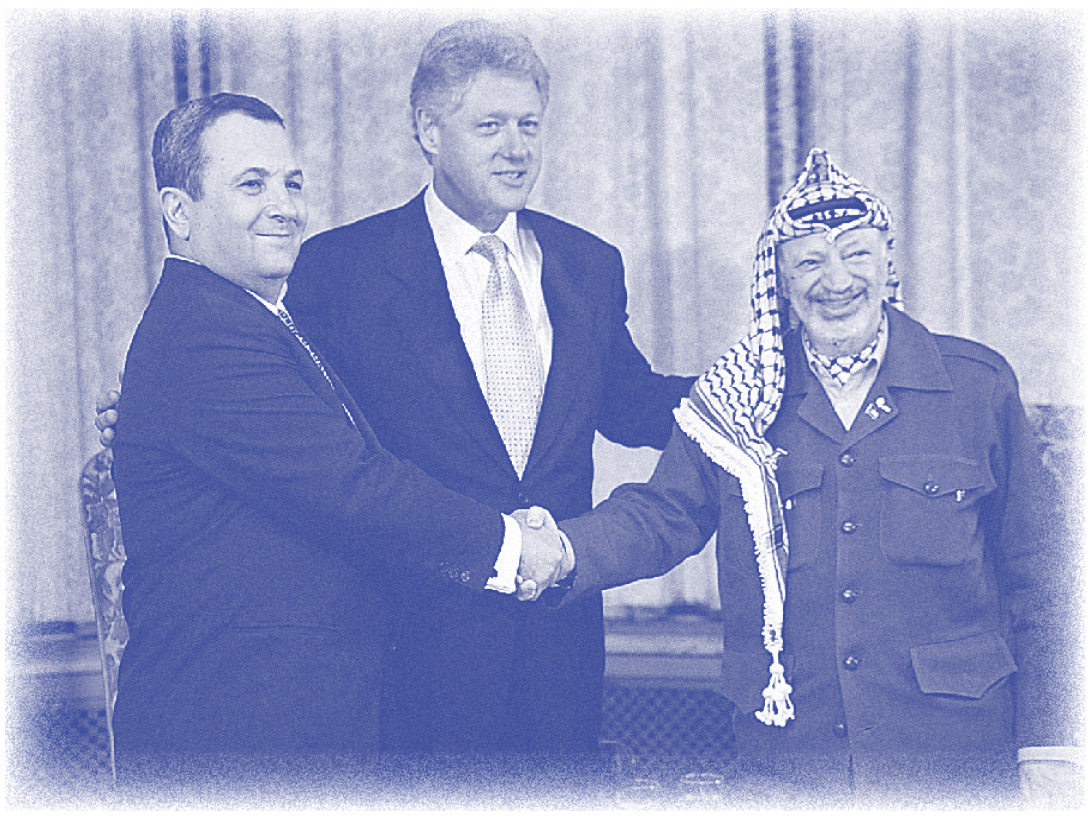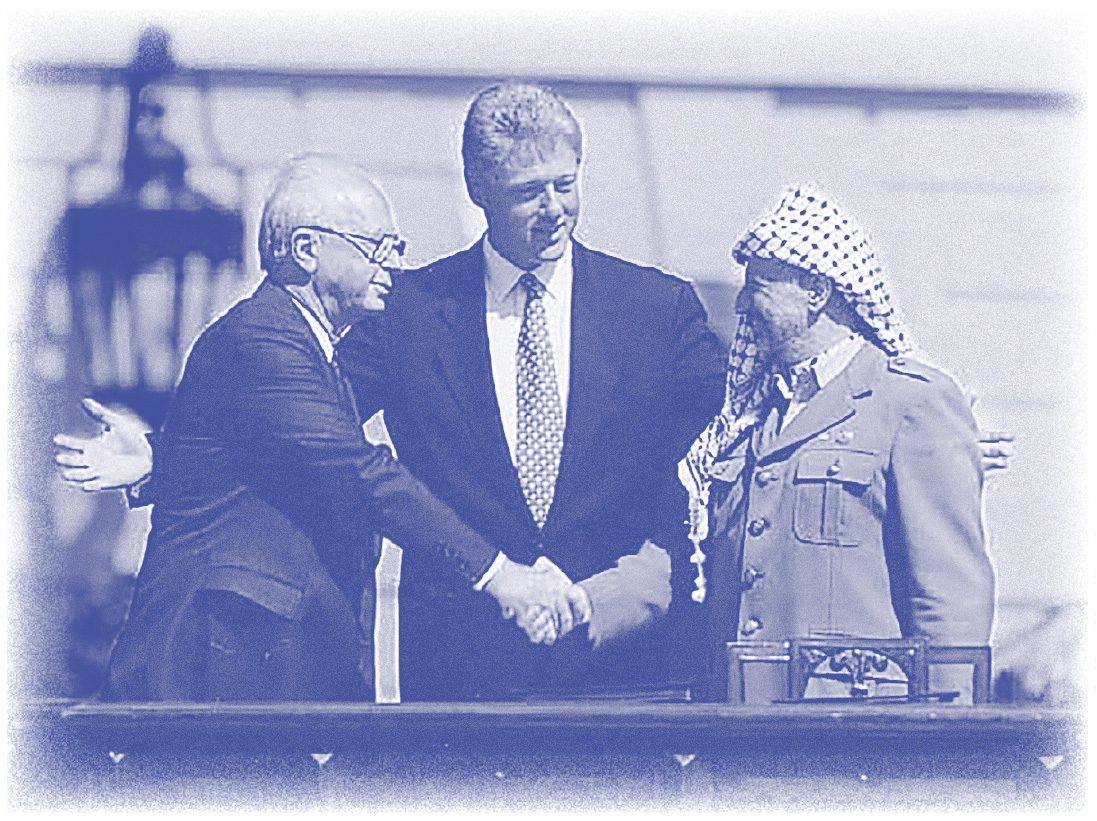
FROM SARAH, OUR SABRA
ON THE GROUND IN ISRAEL
Dear Friend,

credit: Israel Defense Forces (Wikimedia Commons)
Greetings from Israel. My teen-aged twins recently received their first call-up letter for their mandatory service in the Israel Defense Forces (IDF). After finishing their high school education, most Israeli youngsters (with a few exceptions) are drafted when they turn 18 years old. As a mother facing this eventuality, I often ponder what it will be like for them to leave home and become soldiers. Because of the reality of life here, it is very possible that they will face significant danger during their service.
As time passes in Israel, we experience periods of calm and seasons of conflict. This trouble can come internally or from outside our borders. As a mother, the worst-case scenario for me would be for a war to begin while my children are fulfilling their military service. My husband and I have several children who were born close together. Because they will serve in the IDF over consecutive or even concurrent years, the likelihood of this happening is fairly high.
Thinking about Peace
Like many parents who send their beloved children to the military, I ponder the possibilities of peace with our neighbors. What would it take for peace to happen? Could a time actually come when maintaining a massive army is no longer necessary?
There is a “camp” in Israel who wants to end the bloodshed and seeks to enable this improbable peace. On the opposite side, others vehemently oppose any peace deals with nations that have been involved in recent wars with Israel (like Lebanon) or with those that are engaged in terrorism or support violence against Israel (like Syria and the Palestinians).

The events of recent decades have dealt a formidable blow to those in the “peace camp” — traditionally associated with the leftwing parties in our political system. For many years, they enjoyed large majorities in government. But their most devastating loss came in the year 2000. At the Camp David Summit, then-U.S. President Bill Clinton hosted then-leaders Israeli Prime Minister Ehud Barak and Palestinian leader Yasser Arafat, hoping to bring about peace in the Middle East. As the summit proceeded, however, it became clear that peace was unlikely.
Peace prospects
Ehud Barak went further than any of his predecessors regarding the amount of land and concessions he offered the Palestinians in return for a peace deal. Most Israelis felt he was too generous, but when Arafat refused Barak’s offer, this resulted in widespread disillusionment about the prospects of peace for Israel. Many citizens concluded that if we were willing to give up so much and yet it still was not enough, then the Palestinians did not actually want peace. This thinking has influenced every election in Israel since that time. Thus, through the years, we have witnessed the consistent rise of right-wing parties who hold more militant views. This is especially true for the Likud party, which is headed by our current prime minister, Benjamin Netanyahu.
Negotiations with the Syrians
Recently, the government released to the public 637 secret documents that detail peace negotiations between Israel and Syria. These documents outline Israel’s aspirations related to neighboring nations. During 1992 and 1993, Israeli and Arab delegations held talks in Washington. The newly released documents contain reports from the Israeli delegation to then-Prime Minister Yitzhak Rabin.
Professor Itamar Rabinovich headed the Israeli team that negotiated with Syria and other Arab countries. He described the talks as difficult, cold, and devoid of mutual trust — “as you would expect conversations between enemies.” Some claimed that the talks resembled a “dialogue of the deaf” — an Israeli term describing unfruitful discourse.
Dr. Mowaffak Allaf, who headed the Syrian team, held a hard line during the negotiations. He claimed that peace cannot be laid out in a contract. Rather, he stated that it is a gradual process that could not be imposed on Syria, given the years of hostility between the two countries. Eventually, Allaf admitted that Syria’s concept of peace was limited and that it did not include, for example, diplomatic relations.

While the Syrians insisted on complete Israeli withdrawal from the Golan Heights, Israel wanted a gradual withdrawal that would come only after security arrangements were established. Allaf claimed that Israel’s expectation was unacceptable. The Israelis emphasized that there was never a discussion within Israel about a full withdrawal from the Golan Heights, citing U.S. President George Bush’s statement about a territorial compromise. Yet Allaf held firm, asserting that there would be no peace as long as Israel holds an inch of “Syria’s land.”
In a recent interview, Rabinovich stated: “One of the days Allaf and [I] went to get coffee during a break. After a few pleasantries, he said: ‘I hope your government understands that Hafez al-Assad cannot take less than Egyptian President Anwar Sadat.”* I told him that if he doesn’t want to receive less than Sadat, he should give what Sadat gave.”
*Hafez al-Assad was the Syrian president when the negotiations were held. Anwar Sadat was the Egyptian president who signed the peace deal between Israel and Egypt in 1978. As part of that agreement, Egypt received the whole of the Sinai Peninsula. Sadat was later assassinated in 1981 for making this deal.
Rabinovitch noted that around August 1993 — about a month before signing the Oslo Accords with Yasser Arafat on the lawn at the White House — Rabin had second thoughts about the Oslo agreement. Thus, he made one last attempt to secure the Syrian possibility. Syria’s answer disappointed him, however, so he abandoned that option. In 1995, an extreme right-wing Israeli assassinated Rabin for seeking to advance the peace process with the Palestinians. While some talks continued in 1996, normalization between Israel and Syria never materialized, nor have negotiations progressed to this time.
Biblical decrees

Believers in Yeshua/Jesus as Messiah should be familiar with the exhortation in Romans 12:18, “If it be possible, as far as it depends on you, live at peace with all men.” Based on this, many believe that we should strive for peace and do whatever is needed to achieve it. However, God also clearly warned the people of Israel after they left Egypt that they were not to make any covenants with the nations around and in the Promised Land. Exodus 23:32 notes, “Do not make a covenant with them ….” Deuteronomy 7:2 also states, “… make no treaty with them, and show them no mercy.” Considering these Scriptures, it is interesting to note that since the birth of the modern State of Israel and Israel’s return to the Land, no peace treaty has been signed by Israel giving over land that was originally given to it by God.
Im tirdefu lada-at oto —
“Press on to know HIM!” (Hosea 6:3 NLT),
Sarah Liberman
P.S. I truly enjoy writing these letters to you about Israel and the Biblical perspectives of this region. If you have questions or topics that you are interested in for future letters, please write to me at staff@levitt.com or P.O. Box 12268, Dallas TX 75225 and let me know. ✡
 : Best Present Ever!
: Best Present Ever!
December is a season of gift giving. Thus, it’s never too early to shop for presents. Could you imagine receiving a Holy Land tour for Hanukkah or Christmas? How rewarding would it be to watch your family open cards that state, “Your gift this year is a trip to Israel!”
Acts 20:35 emphasizes Yeshua’s words: “It is more blessed to give than to receive.” As a mom and a grandmother, I (Kirsten) find great joy in giving. Picture yourself presenting your family the gift of a spiritual adventure to the Land of the Bible. We make that possible!
Our tour manager, Sandra Luttrell, has helped many people prepare for a trip to the Promised Land. You can contact Sandra at 214-696-9760, travel@levitt.com, or levitt.com/tours. She can help you prepare for your journey of a lifetime!
| Deluxe — Israel | October 16–26 | $5,788 |
| Grand Petra — Israel & Petra | October 16–29 | $7,288 |
| Deluxe — Israel | Mar. 25–Apr. 4 | $5,788 |
| Grand Petra — Israel & Petra | Mar. 25–Apr. 7 | $7,388 |
A Note from David and Kirsten Hart
STAYING AFLOAT
How has summer been for you? For us here in Orlando, it’s been toasty! It’s hard to believe that our granddaughter, Bella, starts kindergarten this month. We’re excited about her new learning adventure. We also hope that you are learning new things. Keeping our minds alert and sharp is important for “brain health” as we age. On Our Jewish Roots (OJR), we strive to bring you new and interesting information to stimulate both your mind and your spirit.
A SPRINGBOARD TO UNDERSTANDING
If you read our monthly periodicals but don’t watch our weekly television program, you are missing out. Each week, we offer you not only beautiful footage from the Holy Land but also insightful teachings to help you grow in the Lord. Our production team spends many hours preparing for every program we air. In addition, we pray that our efforts will pay dividends for your spiritual growth.
We also encourage you to take what we teach on OJR and dig deeper. Proverbs 18:15 (TLV) states, “A discerning heart gains knowledge, the ear of the wise seeks knowledge.” Hopefully, our program is a springboard to greater insight through your personal Bible study.
ENHANCE YOUR MIND AND YOUR SPIRIT
Lifelong learning also increases your happiness and fulfillment, which is a win-win! So, at the start of another school year, we hope that you will continue learning as well.
One place to begin your study is through our Institute of Jewish-Christian Studies. Both of us completed this correspondence course, and we know that it will stimulate your thinking and your spiritual walk. The 12 courses take you from the Old Testament through End Times events. Zola Levitt and Jeffrey Seif teach you through an audio and workbook format. The course is available via the “Store” tab on levitt.com. Happy Learning!
Sha’alu shalom Yerushalayim! —
“Pray for the peace of Jerusalem!” (Psalm 122:6),
David & Kirsten
P.S. Would you join us in praying for a smooth transition as we change Bible teachers on OJR? While such transitions aren’t always easy, we are forging ahead with a renewed purpose. If you believe in this ministry and desire to proclaim and teach the Jewish roots of Christianity to future generations, would you also consider helping us with an extra contribution this month? Thank you! Shalom. ✡


Our Jewish Roots TV programs in August
Same places, but a few new faces! This month you will still see Kirsten and David in their TV studio seats, and joining them will be two new teachers — the Bearded Bible Brothers. Hopefully, you are aware of our transformation on OJR. We believe you will love and appreciate the teaching of these Jewish Messianic Believers — Joshua and Caleb — and will consider them family.
This month we continue our series, Joshua: More than a Conqueror. It reveals how Joshua went from a dependable apprentice to the faithful leader who led Israel to conquer Canaan — the land God promised to His Chosen People. While we will see Dr. Jeffrey Seif’s teaching from Israel, Joshua and Caleb will be in the studio discussing each teaching segment. Here’s a fun fact: Bearded Bible Brother Joshua Colson portrays the Biblical Joshua in the dramatic reenactments throughout this series.
Joshua: More than a Conqueror
At Sinai — Joshua is first presented with the other newly freed Hebrew slaves who journeyed to the base of Mount Sinai to receive the laws written by the hand of God. Joshua’s leadership training came while he worked behind the scenes for decades as the steady and faithful apprentice to Moses.
The Spy — Twelve men were sent to scout out Canaan, the land God had promised to give to the children of Abraham, Isaac, and Jacob. But only Joshua and Caleb returned with a hopeful report. The other ten spies sowed seeds of fear and despair with their negative accounts of the people in the land. What giants do we face that cause us to fear rather than trusting in God?
At the Jordan — Changes in leadership can be difficult. God commissioned Joshua to replace Moses as Israel’s leader when the Israelites were at the border, ready to begin the battle for the Promised Land. God promised He would be with Joshua just as He was with Moses.
At Jericho — The first battle in the land of Canaan was at a fortified city — something the Hebrews had never encountered. Joshua showed his faith by following God’s instructions for attacking Jericho. After the Lord miraculously brought down the walls, the Israelites could move forward into the battle.

 Zola Levitt Ministries is ECFA approved and has Charity Navigator’s top rating of 4 stars, plus Ministry Watch’s Give With Confidence Score of 100.
Zola Levitt Ministries is ECFA approved and has Charity Navigator’s top rating of 4 stars, plus Ministry Watch’s Give With Confidence Score of 100.


